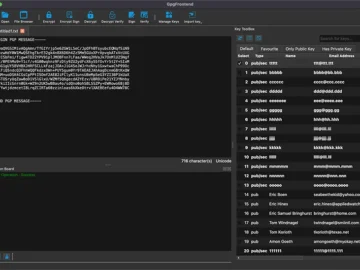ESET researchers have uncovered a supply chain attack targeting a South Korean VPN provider, carried out by PlushDaemon, a newly identified China-aligned APT group.
In this cyberespionage campaign, the attackers compromised the legitimate installer, replacing it with a malicious version that deployed the group’s custom backdoor, SlowStepper. This sophisticated backdoor boasts a toolkit with over 30 components. Since at least 2019, PlushDaemon has conducted espionage operations against individuals and organizations in China, Taiwan, Hong Kong, South Korea, the United States, and New Zealand.
Execution of SlowStepper (Source: ESET)
“In May 2024, we noticed detections of malicious code in an NSIS installer for Windows that users from South Korea had downloaded from the website of the legitimate VPN software IPany. In further analysis, we discovered that the installer was deploying both the legitimate software and the backdoor. We contacted the VPN software developer to inform them of the compromise, and the malicious installer was removed from their website,” says ESET researcher Facundo Muñoz, who made the discovery.
Additionally, PlushDaemon gains initial access by hijacking legitimate updates of Chinese applications by redirecting traffic to attacker-controlled servers. Researchers has also observed the group gaining access via vulnerabilities in legitimate web servers.
The SlowStepper backdoor is used exclusively by PlushDaemon. This backdoor is notable for its multistage C&C protocol using DNS and its ability to download and execute dozens of additional Python modules with espionage capabilities.
The malware collects a wide range of data from web browsers; can take photos; scans for documents; collects information from various applications, including messaging applications (e.g., WeChat, Telegram); can spy via audio and video; and steals password credentials.
“The numerous components in the PlushDaemon toolset, and its rich version history, show that, while previously unknown, this China-aligned APT group has been operating diligently to develop a wide array of tools, making it a significant threat to watch out for,” concludes Muñoz.




